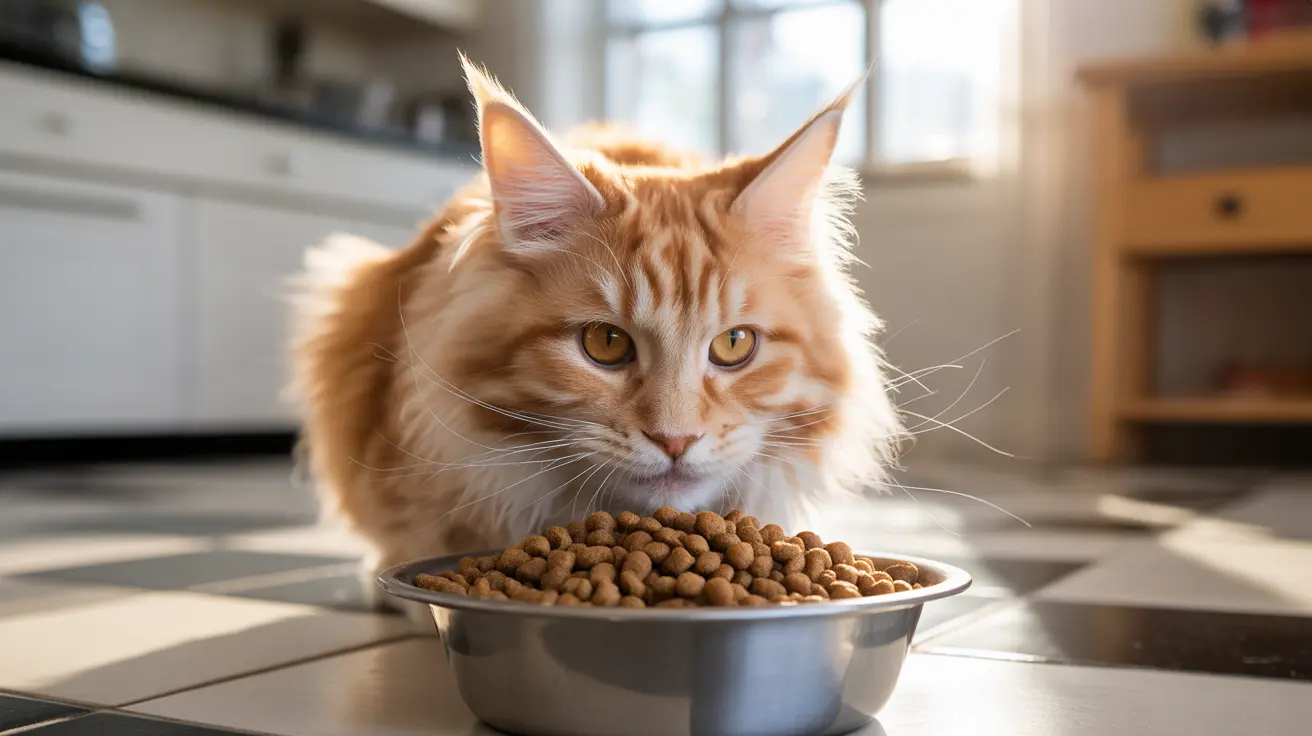Medical Causes of Excessive Appetite
Several health conditions can trigger increased hunger in cats. If your cat won't stop eating, consider these potential medical causes:
Hyperthyroidism
This common endocrine disorder in older cats increases metabolism, causing excessive hunger despite weight loss. Cats may also show increased thirst and hyperactivity.
Diabetes Mellitus
Diabetic cats often display increased appetite alongside excessive thirst and urination. Without proper glucose absorption, these cats feel constantly hungry despite eating more than usual.
Intestinal Disease
Conditions like inflammatory bowel disease (IBD) or exocrine pancreatic insufficiency can prevent proper nutrient absorption, leading to increased hunger as the body tries to compensate for nutritional deficiencies.
Behavioral and Environmental Factors
Stress and Anxiety
Cats may overeat as a coping mechanism for stress or anxiety. Changes in the household, new pets, or disrupted routines can trigger this behavior.
Boredom and Lack of Stimulation
Indoor cats with limited environmental enrichment may turn to food for entertainment, leading to excessive eating behaviors.
Competition
In multi-cat households, some cats may develop a habit of eating quickly and excessively due to perceived competition for resources.
Managing Your Cat's Appetite
Establish a Feeding Schedule
Create consistent meal times and portions to help regulate your cat's eating habits. This structure can reduce anxiety-related overeating.
Environmental Enrichment
Provide interactive toys, climbing structures, and regular play sessions to prevent boredom-induced eating.
Monitor and Track
Keep a food diary and regularly weigh your cat to identify patterns and potential issues early.
When to Seek Veterinary Care
Contact your veterinarian if your cat shows these signs along with increased appetite:
- Unexplained weight loss
- Excessive thirst or urination
- Changes in behavior or energy levels
- Vomiting or diarrhea
- Poor coat condition
Frequently Asked Questions
Why won't my cat stop eating despite having enough food?
Your cat's constant eating might be due to medical conditions like hyperthyroidism or diabetes, behavioral issues such as stress or boredom, or improper portion control. A veterinary examination can help determine the underlying cause.
What medical conditions can cause a cat to have an insatiable appetite?
Several medical conditions can cause increased appetite, including hyperthyroidism, diabetes, inflammatory bowel disease, and parasitic infections. Each requires specific diagnostic tests and treatment plans.
How can boredom or stress make my cat eat excessively?
Cats may use eating as a coping mechanism when understimulated or anxious. This behavior, similar to human emotional eating, can be addressed through environmental enrichment and stress reduction techniques.
What are the health risks of a cat overeating or becoming obese?
Obesity in cats can lead to diabetes, arthritis, heart disease, and shortened lifespan. Overweight cats are also at risk for hepatic lipidosis if they suddenly stop eating.
How do I manage and prevent my cat's constant hunger or compulsive eating?
Implement portion control, establish regular feeding schedules, provide environmental enrichment, and consult with your veterinarian about appropriate diet plans. Address any underlying medical conditions and consider using slow-feed bowls or food puzzles.
Remember, while a food-motivated cat is normal, excessive hunger shouldn't be ignored. By understanding the potential causes and implementing appropriate solutions, you can help your cat maintain a healthy relationship with food and optimal overall health.






